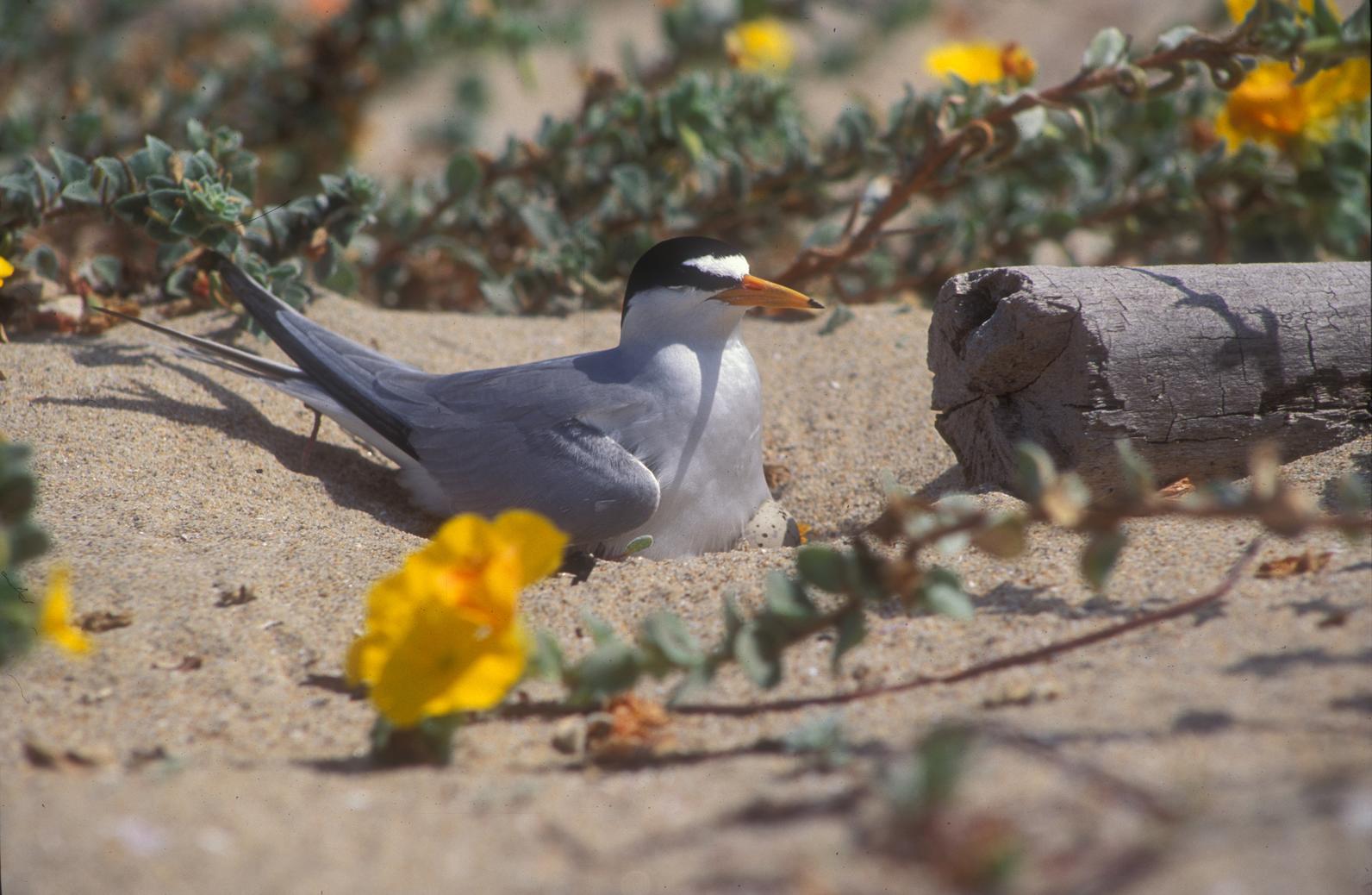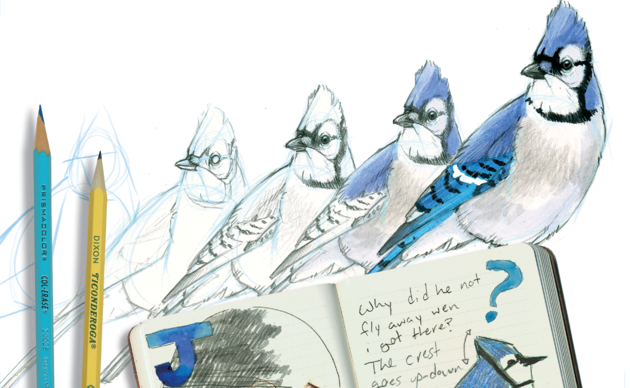
Endangered California Least Terns are nesting again on a Malibu Lagoon State Beach. The Least Tern nests in sandy beaches on the southern coast in California. In the winter it leaves North America entirely and moves to tropical waters as far south as Brazil.
Its nesting location puts it at particular risk from summer beach-goers. A recent story in the Malibu Surfside News offers some great guidelines about how beach-goers can help keep these birds safe. Some basic tips include:
- Pay attention to signs that warn that birds are nesting
- Do not cross fences meant to protect wildlife
- Don't let your dog chase or bark at nesting shore birds
- Whenever you go to natural areas, observe any signs telling you how to protect wildlife and plants
Volunteers from local Audubon chapters have assisted U.S. Fish and Wildlife Service and California State Parks in monitoring and protecting Least Terns and other migratory birds at Malibu Lagoon. In a recent blog post, Santa Monica Audubon Society recently shared some great observations of Least Terns, their work to protect nests, and other migratory birds on this site.
The California Least Tern is listed by the U.S. Fish and Wildlife service as an endangered species, which creates a pathway to create management plans for nesting shorebirds that are crucial to the survival of these birds. The legal status and other protections provided by the Endangered Species Act are critical in giving birds the opportunity to nest safely and eventually bring populations back.
By Rachelle House
How to Draw Birds with John Muir Laws
Draw raptors, garden birds, and waterbirds with these 3 instructional videos with the author of "Laws Guide to Drawing Birds"




